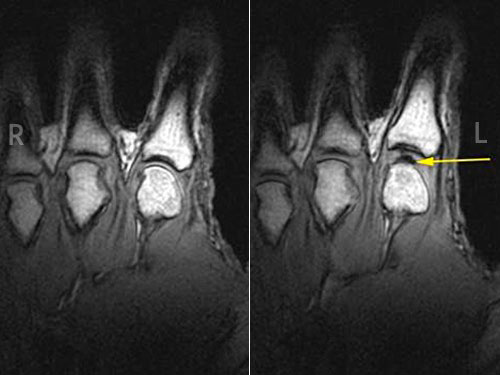Many people have the following habit - cracking their fingers when sitting in a classroom or office. Someone reacts to it irritably, and someone joins in, trying to crack it louder. And someone probably notices that it is very unhealthy and will definitely lead to arthritis. But is it true? Is it really harmful to crack your fingers on the hands? Let's figure this out based on expert opinion and solid practice.

No, there is no harm in this procedure, even if you do it several times a day.
Anyone can eventually get arthritis, but the disease has nothing to do with this habit.
The joints contain a special fluid that reduces friction. When stretched, the gas dissolved in it forms bubbles, which then pop with a specific cracking sound.
Donald Unger, an American doctor, did an experiment on himself, cracking his fingers every day for 60 years, and it did not lead to any negative results.
First of all, it is necessary to understand why the fingers are crackling. The fact is that all knuckles are filled with synovial fluid - a natural lubricant, quite thick. Thanks to the fluid, knuckles are less fraying and longer serve the person without causing any problems. If you extend the finger, the volume of the knuckle will increase, and therefore the pressure in the fluid will decrease. The gas will dissolve and turn into bubbles. In a moment they will pop with a specific crackling sound. Many people mistake this sound for the crackling of the knuckles themselves.
According to all the studies (and they have been done many times!) there is no harm by crackling.
The serious proof is the research of Donald Unger, a doctor from the United States. According to the legend, as a child, his mother often told him that it would definitely lead to arthritis. Then the nosy boy decided to check what would happen if he had to crack his fingers every day. And so, with medical certainty, he began his research. And he cracked only the knuckles of one hand, leaving the other as a control sample. The experiment lasted for sixty years! And during all that time Donald has not noticed any difference - the condition of the "experimental" hand did not get any worse. He wrote a scientific work based on the study's results and even received the Ig Nobel Prize.
So, we've settled on the fact that it's not harmful to crack your fingers. But does this apply to other knuckles, such as the spine and neck - because there are quite a few people who like to crackle them too, relaxing after sitting in the same position.
Well, actually, it's less safe. No, the cracks by themselves cannot hurt - the principle is exactly the same as with the finger knuckles. But sharp turns can shift the vertebrae, and there is already a risk of damaging the spinal cord and becoming disabled for life. This is why you should be extremely careful with your neck and spine.
Another question that is closely related to the topic is how do you learn to crackle your fingers? Some people do it easily and casually, but others would like to learn a useless but fun skill. Grasp a finger from one hand with your other hand and easily pull it forward or down - just don't pull it sideways; the main point is not to break it.
You can crack all your fingers at once for a more dramatic sound. To do this, intertwine your fingers together and pull your hands forward, curving your fingers slightly backward.
By the way, it's useful to remember - you can't repeat the crackle once again. You need to give the knuckles time to accumulate enough air in them for the next sonorous crack. Usually, it can take up to 15 minutes.
References: Links and sources